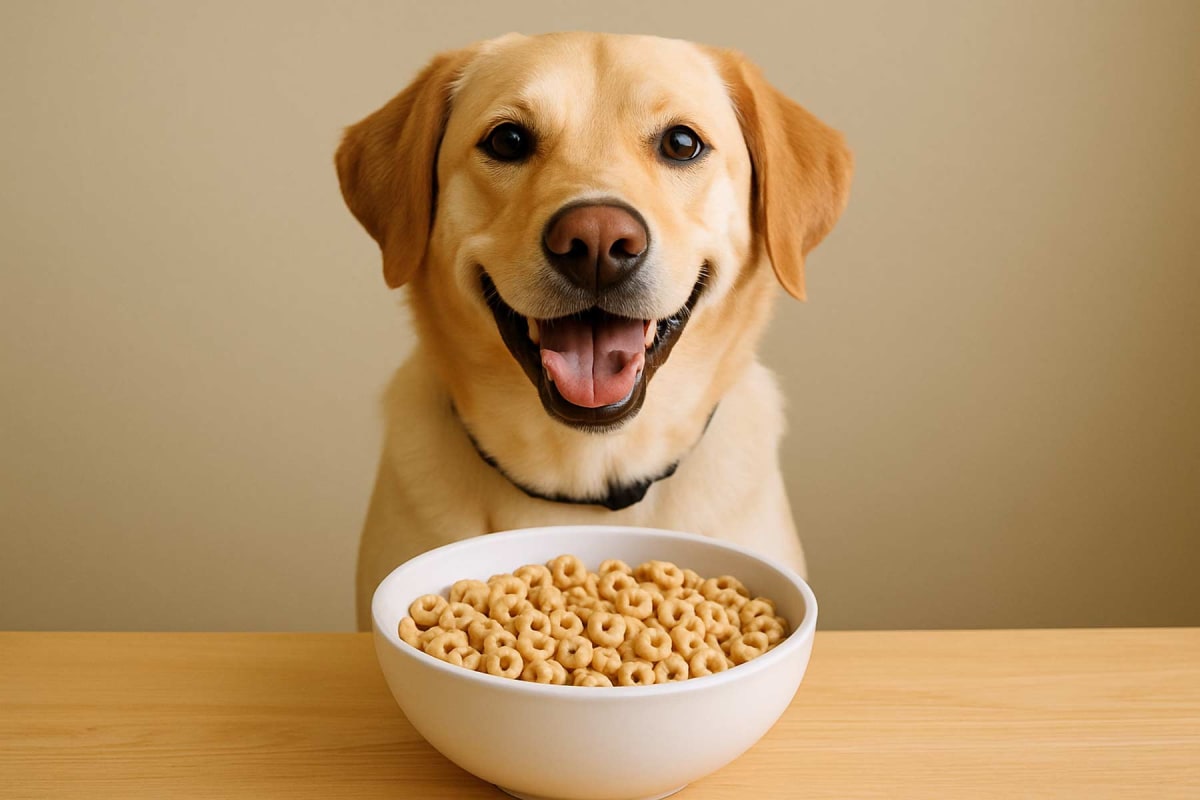
Can dogs eat cheerios?
Can dogs eat cheerios?
Can dogs have Cheerios?
As a dog owner, you've probably wondered about sharing your breakfast with your furry friend. The short answer is yes, dogs can eat Cheerios (plain) in moderation. Plain Cheerios contain whole grain oats and minimal sugar and salt, making them relatively safe for canine consumption as an occasional treat.
Let's dive into everything you need to know about dogs and this popular breakfast cereal.
Are Cheerios good for dogs?
While Cheerios aren't harmful in small amounts, they're not particularly beneficial for dogs either. Dogs have different nutritional needs than humans, and their primary nutrition should come from high-quality dog food specifically formulated for their needs.
Cheerios do contain whole grains, which provide some fiber, but dogs can get better nutrition from their regular dog food and appropriate dog treats. The main benefit of Cheerios is that they're low in calories compared to many commercial dog treats, making them a reasonable option for:
Training treats (when you need many small rewards)
Occasional treats for dogs on weight management programs
Remember, any human food, including Cheerios, should make up no more than 10% of your dog's daily caloric intake.
Can dogs eat Honey Nut Cheerios?
Honey Nut Cheerios are not toxic to dogs, but they are not recommended. This variety contains added sugars, honey, and almond flavoring, which aren't ideal for dogs and can lead to:
Weight gain
Dental problems
Blood sugar spikes (particularly concerning for dogs with diabetes)
Potential digestive upset
While a few pieces won't harm most dogs, it's best to avoid all flavored varieties, especially since some may include ingredients that are unsafe for dogs, such as chocolate and artificial sweeteners. Stick to the plain cheerios. Your dog won't know the difference, but their body will thank you!
What cereal can dogs eat besides Cheerios?
If you're looking for other cereal options for your furry friend, plain, unflavored cereals like bran flakes and corn flakes with minimal sugar and salt content are okay in small portions on occasion. Always avoid cereals that contain these ingredients, which can be toxic or dangerous for dogs:
Chocolate
Raisins or grapes
Macadamia nuts or pecans
Artificial sweeteners (especially xylitol, which is toxic to dogs)
High amounts of sugar
Added flavors and colors
Even "safe" cereals should only be occasional treats and never dietary staples for your dog. Always start with just a tiny amount so you can monitor them for any adverse reactions.
Tips for feeding Cheerios to your dog
Cheerios can be a safe, occasional treat for most dogs. Remember these guidelines to keep your pup happy and healthy:
Always choose plain or original Cheerios, as these have the least sugar and additives.
Limit the amount to just a few pieces as a treat-never a full bowl.
Monitor your dog for any signs of allergies or digestive upset, especially when introducing a new food.
Never feed Cheerios containing chocolate, xylitol, or other artificial sweeteners, as these are toxic to dogs.
If your dog has a sensitive stomach or known grain allergies, skip Cheerios altogether and opt for grain-free treats.

Healthier treat options for dogs
While dogs may enjoy the occasional Cheerio, there are many healthier foods dogs can eat, including:
Fresh fruits and vegetables (in appropriate serving sizes):
Blueberries
Apple slices (no seeds)
Cucumber pieces
Green beans
Cooked plain sweet potato
Commercial dog treats formulated for specific benefits:
Dental health treats
Training treats
Joint support treats for older dogs
Homemade treats where you control the ingredients:
Frozen plain yogurt drops
Dehydrated sweet potato slices
Baked pumpkin treats (no cinnamon or nutmeg)